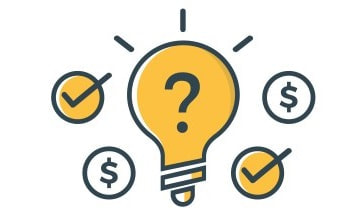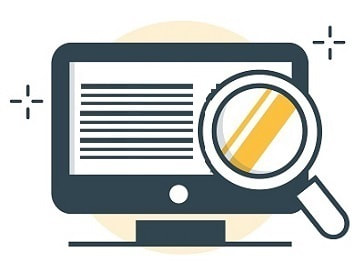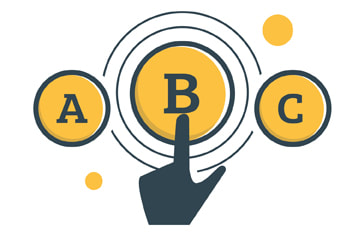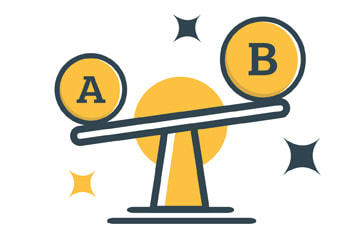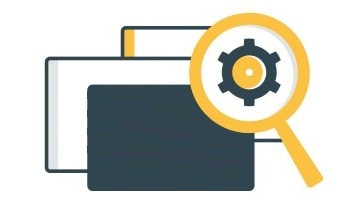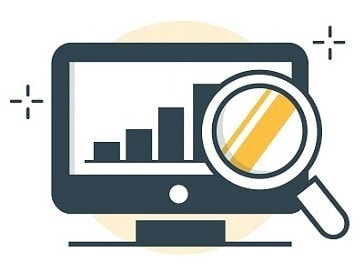Initial Coin Offerings - The Definitive New Zealand Guide
Initial coin offerings are a controversial scheme used to raise funds for blockchain and decentralised finance start-ups. Our guide helps you to understand the risks before making any investment.
Updated 8 August 2023
Initial coin offerings, commonly initialised as ICOs, are a popular method for fundraising in the cryptocurrency community. The term initial coin offering is similar to an initial public offering (IPO), which is when a private company floats its shares on a public stock exchange.
While IPOs are highly regulated and controlled, ICOs are unregulated and often legally questionable. Many thought leaders and pundits in the crypto community liken ICOs to IPOs, but there is a world of difference between the two schemes.
Know this first:
Summary:
Our guide covers:
Initial coin offerings, commonly initialised as ICOs, are a popular method for fundraising in the cryptocurrency community. The term initial coin offering is similar to an initial public offering (IPO), which is when a private company floats its shares on a public stock exchange.
While IPOs are highly regulated and controlled, ICOs are unregulated and often legally questionable. Many thought leaders and pundits in the crypto community liken ICOs to IPOs, but there is a world of difference between the two schemes.
Know this first:
- Initial coin offerings are incredibly risky investments. While there are a handful of major success stories, there are far more examples of failure and fraud.
- We do not recommend anyone investing in ICOs and this guide is published in good faith to help New Zealanders decide if an ICO is right for them.
- We feel ICOs should only be considered if you want to support a project and understand that your contribution is most likely a donation, not an investment.
- We suggest reading this guide from BitPanda about spotting an ICO scam.
Summary:
- Companies involved in cryptocurrency, blockchain, or decentralised finance use ICOs to raise funds to start a company or project.
- When ICOs are performed, the company issues blockchain-based coins or tokens, which are sold to supporters or investors; these tokens are typically not tradable on exchanges and must be bought directly from the issuer.
- Funds are raised by selling coins or tokens to investors who hope that the project's success will cause the tokens to increase in value, resulting in a profit.
- While there have been many hugely successful ICOs, there are many more examples of failure and fraud.
- A heavily cited study from advisory firm Stasis claimed that 80% of ICOs in 2017 were scams. The FMA shut down an ICO in 2017 promoted by Ashutosh Sharma (SellMyGood.com Coin) after complaints and questions about the legitimacy of the facts presented to investors.
- There are several variations of ICOs, the most common are security tokens, utility tokens and currencies.
- In New Zealand, ICOs are neither prohibited nor regulated. Depending on the ICO structure, they may require the issuer to seek authorisation for other regulated activities.
Our guide covers:
Introduction to Initial Coin Offerings
- Popular crypto exchanges, such as Binance, list thousands of tokens; you may wonder where all these tokens originated. According to Statista research, almost ten thousand cryptocurrencies are actively used in the market. The overwhelming majority of products listed on Binance result from an initial coin offering (ICO). Established cryptocurrencies Ethereum and NEO are examples of tokens that resulted from previous ICOs.
- An ICO is the process of creating a new token on a blockchain through a process called minting and offered to the public. The newly created tokens are issued, sold and sent to the buyer's crypto wallet. The objective is for the issuer to raise funds in exchange for their tokens. The value of the token is determined by many factors, but mostly on the terms, aspiration and token economics.
- ICOs are tokens published on open-source blockchain technologies, such as the Ethereum network. More than 80% of ICOs are Ethereum-based smart contracts, known as ERC-20 contracts. Generally speaking, anyone with the equivalent of several dollars of Ethereum, some basic coding knowledge and an understanding of blockchain technology can create a token and launch an ICO.
- Smart contracts specify various terms, such as the total supply limit, the number of decimals supported, the ability to issue new tokens or burn circulating tokens, permissions for certain wallets to transfer tokens and various limits. Smart contracts are publicly visible on the blockchain, allowing anyone to evaluate the token's functionality.
- While writing contracts and minting tokens is relatively straightforward and perfectly legal, selling tokens to the public to raise funds is another matter. In dozens of high-profile cases, token issuers and their ambassadors have been charged with violating securities laws. Celebrities, including professional boxer Floyd Mayweather Jr and music producer DJ Khaled and media personality Kim Kardashian, have been charged by the US Securities and Exchange Commission for failing to disclose payments for promoting ICOs.
- The risk of investing in ICOs is amplified by the sector's lack of clear regulation, which can result in legal action being taken against the issuer, resulting in a decline in asset value.
- Many ICOs are scams - Ashutosh Sharma (SellMyGood.com Coin) is a local example of an ICO that appeared to inflate the underlying website's success by a factor of 10,000; the ICO was then shut down by the FMA.
ICO Regulation in New Zealand
The status of ICO regulation in New Zealand is generally vague, as is the case in most other developed economies. The New Zealand Financial Markets Authority (FMA) has published guidelines on cryptocurrencies and crypto-asset services but does not have any specific regulations concerning ICOs. The FMA has clearly stated that all ICOs must follow fair dealing requirements to avoid misleading investors.
If the ICO is not considered a financial product, for example, a utility token, then the ICO issuer must follow fair dealing obligations as defined in the Fair Trading Act 1986. However, if the ICO is considered a financial service, the issuer must follow the fair dealing requirements in Part 2 of the Financial Markets Conduct Act 2013 (FMC Act).
The FMA warns that ICOs could be regulated activities requiring authorisation depending on the structure. Therefore, if an ICO is considered a financial product or a security, the issuer may need authorisation under the FMC Act unless the ICO is targeted at wholesale investors or investors based overseas.
If the ICO is not considered a financial product, for example, a utility token, then the ICO issuer must follow fair dealing obligations as defined in the Fair Trading Act 1986. However, if the ICO is considered a financial service, the issuer must follow the fair dealing requirements in Part 2 of the Financial Markets Conduct Act 2013 (FMC Act).
The FMA warns that ICOs could be regulated activities requiring authorisation depending on the structure. Therefore, if an ICO is considered a financial product or a security, the issuer may need authorisation under the FMC Act unless the ICO is targeted at wholesale investors or investors based overseas.
Types of Coins and Tokens
The terms coin and token are often used interchangeably in the decentralised finance industry. A coin can be understood as a form of digital currency, such as how Ether is the native cryptocurrency of Ethereum or XRP is the native cryptocurrency of Ripple. Most ICOs involve the sale of tokens created on blockchains rather than the development of entirely new blockchains and native cryptocurrencies.
Some ICOs have been classified as securities by financial regulators. Therefore, several variations of ICOs have emerged to evade regulatory scrutiny.
Some ICOs have been classified as securities by financial regulators. Therefore, several variations of ICOs have emerged to evade regulatory scrutiny.
Security tokens
Security tokens are digital assets that represent ownership of a transferable financial asset, such as equity in a company, debt, commodities and others, as defined by securities regulations. Security tokens need to be regulated in most countries, including New Zealand. Therefore, token creators carefully design their tokens to avoid being defined as security tokens.
Utility tokens
Utility tokens will never entitle the owner to receive any interest, profits or ownership of the company. They are designed to provide value to owners without being considered a security. Therefore, utility tokens may offer holders benefits such as early access, discounts or credits when the project is launched. If there is a limited supply of utility tokens and the project experiences increased demand, the token value may appreciate.
IPO vs ICO
At the peak of the ICO hype, many crypto influencers compared initial coin offerings to a form of democratised and decentralised initial public offerings that gave power to the people. While IPOs are indeed highly regulated and controlled by securities and financial market regulators, ICOs are unregulated and unrestricted.
Consider that, according to Figure NZ, in New Zealand, 59% of businesses incorporated in 2016 have ceased operating. The fate of extremely young startups with niche products and abstract business models is almost predictable.
Consider that, according to Figure NZ, in New Zealand, 59% of businesses incorporated in 2016 have ceased operating. The fate of extremely young startups with niche products and abstract business models is almost predictable.
ICOs |
IPOs |
|
Project phase |
ICOs often start raising funds with just a white paper and website, sometimes with a prototype or MVP. |
Companies listing on stock exchanges are mature and have years and sometimes decades of track record. |
Due diligence |
No due diligence is required for someone to mint a token and start selling publicly. |
Companies listing on a stock exchange submit a prospectus to regulators and require approval before their shares can be floated on an exchange. |
Transparency |
While the token economics are published in smart contracts, the funds raised from a token sale can be spent however the founders' desire. |
Publicly listed companies must submit quarterly interim financial statements to shareholders, prepare comprehensive annual reports, and be audited annually. |
Accountability |
Companies conducting ICOs are often incorporated in jurisdictions where ownership records are hidden or using nominees is allowed. |
Company directors can be held personally accountable for their actions and may be fined or prosecuted. |
Equity |
As most ICOs are structured to be utility tokens, they do not offer any equity in the project; they are essentially worthless. |
Every company is formed with a fixed share capital; every share represents ownership of a portion of the share capital, giving each share a face value. |
Liquidity |
New tokens from ICOs are unlikely to be tradeable on exchanges, making them hard to sell to other investors. |
Shares of publicly listed companies are traded on regulated exchanges which impose minimum trading volume requirements. |
How to Participate in ICOs
- Because of the high money laundering and fraud risks associated with ICOs, most banks and payment processors will refuse to process payments for ICO projects. Therefore, anyone interested in buying a token would need to fund their purchase with other cryptocurrencies, such as Bitcoin or Ethereum.
- Buying Bitcoin can be complicated and risky; we recommend reading our how to buy Bitcoin in New Zealand (in four must-know steps) guide.
- Once you have chosen a project to support, you’ll need to transfer the amount you intend to contribute from your crypto wallet to theirs. Participating in ICO token sales is incredibly risky, especially when verifying who is behind the project is hard. If you transfer cryptocurrency to a third party, those transactions are irreversible, meaning you’ll never get your money back if you've been duped.
- If you’re curious about the potential ICO opportunities, organised environments like the Binance Launchpad feature are a better option for discovering projects raising funds in exchange for tokens. Be wary of any token sales recommended to you in any forums or chats or by online influencers; their information is likely biased.
Remember - many ICOs are scams. This useful guide explains how to spot and avoid ICO scams.
Recent Successful ICOs
The success of an ICO can be evaluated in various ways, such as the amount of money raised, how much investors gained or whether the project launched successfully and made an impact. Here are some generally accepted examples of successful ICOs:
Ethereum ICO
Ether, which has long been the second-largest cryptocurrency by market cap, is arguably the most successful ICO. The Ethereum project has greatly impacted the decentralised finance community and is the platform of choice for many other blockchain projects. At the end of August 2014, the Ethereum token sale concluded, raising 31,500 BTC, at the time, worth just over NZ$19 million. Ether tokens were sold for the equivalent of 31 cents each during the token sale, meaning that early investors multiplied their initial investment by thousands. The Ethereum network launched a year after the ICO.
EOS ICO
EOS is considered a third-generation blockchain positioned as the Ethereum killer due to its increased processing speed and enhanced functionality. The project launched in June 2018 following a year-long ICO, which began in June 2017. The project raised a record-breaking US$4.1 billion. Despite the EOS ICO fundraising success, the platform has yet to gain sufficient adoption in the decentralised application or finance communities. EOS tokens were sold for approximately US$0.925 each during the ICO. Despite reaching highs of over US$15 per token, the EOS price is at the same level as when the ICO concluded in June 2018, leaving investors with minimal upside.
BNB ICO
Leading cryptocurrency exchange Binance performed an ICO between the 26th of June and the 3rd of July 2017. Binance was already operating as an exchange at the time. The company raised US$15 million to develop new trading platform features and invest in marketing activities. BNB tokens were for US$0.11 each, which could have generated early token holders life-changing returns.
Frequently Asked Questions
How can I find out about upcoming ICOs?
Popular cryptocurrency websites, such as CoinMarketCap, host ICO calendars where they list upcoming ICO events. Remember that these sites do not perform due diligence on any ICOs listed.
What is an ICO airdrop?
An airdrop is when an ICO promoter distributes tokens to community members for free or as a reward for a menial action, such as subscribing to a mailing list or sharing a post on social media. Airdrops were a popular strategy for promoting upcoming token sales by ensuring more people interested in the token’s success.
What is an IEO?
An initial exchange offering (IEO) is when a token is listed on a crypto exchange. When a token is listed on an exchange, it implies the exchange performed due diligence on the organisation behind and token listed. An IEO differs from an ICO as supposedly reputable exchanges act as an intermediary instead of purchasing tokens directly from the issuer.
What is the difference between a coin and a token?
In the cryptocurrency world, coins are typically the native token of a particular blockchain project. For example, Ether is the native coin of Ethereum and XRP is the native coin of Ripple. In contrast, tokens are created using existing blockchains, such as the Ethereum network or Stellar.
What’s the difference between an ICO and an NFT?
Non-fungible tokens and ICO tokens are similar in that they are both tokens with properties defined on public ledgers and convey ownership to a particular blockchain address. However, what the tokens represent is notably different. ICO tokens are typically considered a store of value or provide some utility to holders, while NFTs represent ownership rights of a unique object.
Related guides and resources
- Ashutosh Sharma (SellMyGood.com Coin) - a 2017 ICO that appeared to inflate the underlying website's success by a factor of 10,000 before being shut down by the FMA.
- How to Buy Bitcoin in New Zealand
- Bitcoin and Crypto Scams
- Bitcoin Wallets
- Easy Crypto vs Swyftx
- Joshua Wang YouTube Guide (buying Bitcoin in New Zealand)
- FMA Crytocurrency Guidance (external site)
- Beginner's Guide to Cryptocurrencies
- How to Buy Ethereum in New Zealand
- Easy Crypto Review
- Independent Reserve Review
- Swyftx Review
- Binance Review
- New Zealand Bitcoin Exchanges
- Bitcoin in New Zealand
- How to Buy Ripple in New Zealand


